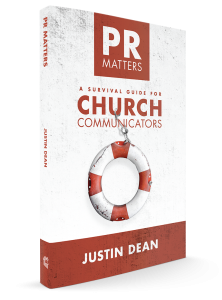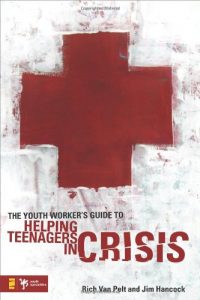Crisis is an inevitability. It’s not a matter of if, but when. Further, people act differently when in crisis and so a well thought out plan is needed. Even better, a plan that is revisited and practiced regularly will reduce the impact of a crisis. Finally, proactivity reduces being reactive and instead allows a person or ministry instead to respond. To do this, you need to have a crisis plan.
External Crisis
There are two kinds of crisis that can impact anyone, any family, any organization, any community. The first kind of crisis comes from outside and usually hits home hard. This can include natural disasters, fires, car accidents, and violence or terrorism. The fact of the matter is, we cannot control these events but we can control how we respond while avoiding reacting to the situation.
Internal Crisis
The other type of crisis comes from within. This may be due to the consequences of poor budgeting, lack of communication, not taking care of ones self with soul care, or hidden sins that become public. Many of these issues could have been avoided, but that is for another article. Today is how to respond to the crisis.
It’s the idea of being proactive we must focus on today so that tomorrow we can come up with a plan. Being reactive does not include thinking rationally, understanding what others are feeling, communicating concerns, or debating the best course of action. When something happens and people feel they are in crisis, there is a fight, flight, or freeze mentality with the desire to return things to how they were when things were safe and comfortable.
The problem is that here is where many people are hurt and traumatized in the course of “returning to safe.” It is our duty to know the game plan, where it is written down, and where contact lists are located. Tomorrow, we will talk about a couple of personal experiences of how crisis happened with one having a crisis plan that helped achieve success and the other which did not. While we wait for this article, I want to push you to check out a couple of resources in a variety of church areas to help when crisis hits.
#PRMatters
 The first is a book on Public Relations with regards to churches. Too often, we do not consider how we are communicating when in a crisis, yet the world sees it clearly. Check out this book on how to communicate well by Justin Dean called #PRMatters.
The first is a book on Public Relations with regards to churches. Too often, we do not consider how we are communicating when in a crisis, yet the world sees it clearly. Check out this book on how to communicate well by Justin Dean called #PRMatters.
The Youth Worker’s Guide to Helping Teenagers in Crisis
 The second is a book called The Youth Worker’s Guide to Helping Teenagers in Crisis. It’s just as the book explains with practical tips for you to have and at the very least, purchase it to set on your bookcase so that if a crisis were to happen, you have a reference book.
The second is a book called The Youth Worker’s Guide to Helping Teenagers in Crisis. It’s just as the book explains with practical tips for you to have and at the very least, purchase it to set on your bookcase so that if a crisis were to happen, you have a reference book.
ChurchAndMentalHealth.com Resources
Finally, utilize our Resource page for any resources you may be able to glean from. Note that most of these are not great reactive tools, so reviewing them now is best.
